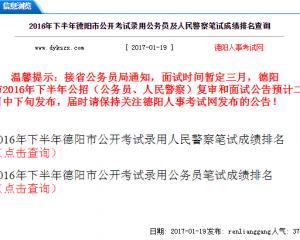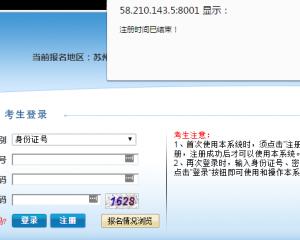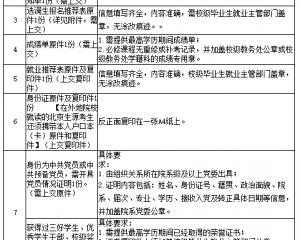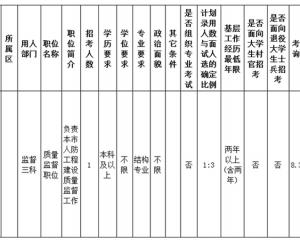Lhasa, the city of sunlight, topped an annual survey of residents' sense of happiness in Chinese cities。
The capital of the Tibet autonomous region has ranked at the top of the survey conducted by China Central Television for five consecutive years。
In this year’s list, Lhasa was followed by Taiyuan, capital of Shanxi province, Hefei, capital of Anhui province, Tianjin municipality, Changsha, capital of Hunan province, and Hohhot, capital of the Inner Mongolia autonomous region。
The capital cities where residents have the most leisure time include Guiyang, Haikou, Guangzhou, Hangzhou, Lhasa, Chengdu and Chongqing。
Around 100,000 households from 104 cities were polled for the survey。
The results showed income level most affected people’s sense of well-being (55.5 percent), followed by health (48.9 percent) and quality of marriage or love life (32 percent)。
Among people with an annual income of 100,000 yuan ($15,700) or more, 6 percent of respondents said they did not have enough free time, compared with 12 percent for those earning 20,000 yuan or less a year。
People’s favorite leisure time activities are surfing the Web and watching TV. Only a small percentage of respondents said they used free time for education, training, going to the gym or social life, according to the results。
Zou Jun, director of the Jiangsu Institute of Urban Planning and Design in Nanjing, said although similar rankings have been conducted by different organizations, the effort is worthwhile because it helps city administrators create new development paths that give greater consideration to residents’ welfare。
The rankings are a reminder to city planners that they should not only address short-term problems such as creating new jobs, but also long-term ones such as providing a decent standard of living and public services for low-income and migrant households, he said。
Zou said officials like to construct landmark buildings or entertainment facilities in city centers as main attractions, but "a city exists not just for tourists. It exists, more importantly, for those who actually live there"。
No cities from the Yangtze River Delta or Pearl River Delta regions appeared in the new rankings. Zou said people in these regions may have higher incomes but less leisure time for cultural and spiritual interests。
Wang Wenjie, 27, has worked as a human resources specialist at a pharmaceutical company in Shanghai for two years. She has adopted a positive mindset to deal with daily pressures。
"I have a circle of close friends. And I am surrounded by intelligent people with similar interests. Such an environment inspires me to grow and learn," Wang said。
Wang’s parents in Fuzhou, Fujian province, used to worry about her, but after visiting Shanghai they became convinced that she enjoys living there。
Wang said she enjoys helping people learn new skills and seeing a sparkle in their eyes。
"I think of five things that I am grateful for when I go to bed every night," she said, "For me, keeping a positive mindset is the key to finding happiness in life."
Wang finishes work at 5 pm and has plenty of time to do activities she enjoys, such as swimming, hanging out with friends, going to a reading group and watching theater performances。
"Living in big cities may involve pressure due to higher expenses. But they can offer a rich cultural life for people to feel more fulfilled," she said。
8月19日,央视财经频道在拉萨举办“2012幸福城市市长论坛”,论坛期间发布的数据显示,拉萨连续6年位列居民幸福感前三名,而重庆则进入了幸福感排名前十强。
重庆位列前十强
根据央视的调查,休闲时间排名前十的省会城市(十大休闲之城)是:贵阳、海口、广州、杭州、拉萨、成都、重庆、太原、福州和长沙。
幸福感排名前十的省会城市(十大幸福之城)是:拉萨、太原、合肥、天津、长沙、呼和浩特、石家庄、济南、银川、重庆。
休闲时间多而幸福感也强的城市有4个:拉萨、重庆、太原、长沙。重庆同时进入两个排名的前十强。调查指出,重庆跻身前十,除了市民收入水平的提升外,拥有较充分的休闲时间也是理由之一。
据悉,本次调查涉及全国104个城市300个县的10万户家庭,围绕“居民幸福感”等核心话题开展了为期一年的调查。
年入10万元是休闲门槛
本次调查还显示,年收入10万元是收入上的“休闲门槛”所在:年收入在2万元以下的较低收入人群中,12.01%的人没有休闲时间,休闲时间每天在1-2个小时之间的比例最大;而年收入在10万元以上的较高收入人群中,只有5.87%的人没有休闲时间,休闲时间每天在2-3个小时之间的比例最大,休闲时间每天在3小时以上的高达33.87%。
在休闲活动中,人们最热衷的是上网、看电视,相对而言,学习培训、健身锻炼、社交娱乐的从事比例很小。
本次调查中,70%的受访者年收入在5万元以下。也就是说,大部分人依然在“有钱和有闲不能兼得”中挣扎,无法保证同时拥有高收入和高闲暇。
收入成影响首因
“老百姓从来不用GDP来衡量幸福。当人均GDP超过3.7万元后,收入对幸福感的提高作用就逐渐减弱了。”昨天,北京大学(微博)国家发展研究院副院长胡大源在论坛上介绍。
据他称,2012年,中国百姓预期自己收入会增加的比例达到了54.4%,也就是说超过半数的人对今年的收入增长是有信心的。而最乐观的受访者,来自上海、重庆和海南。从年龄段来看,对收入增加最有信心的,是18岁到35岁的年轻人。
而央视的调查则显示,影响百姓幸福感的首要因素,仍然是收入水平(55.53%),排在第二和第三位的分别是健康状况(48.91%)、婚姻或感情生活状况(32.09%)。
影响幸福感的因素排序
收入水平(55.53%)、健康状况(48.91%)、婚姻或感情生活状况(32.09%)、社会保障(28.72%)、人际关系(27.96%)、道德风气(21.39%)、事业成就感(21.37%)、环境卫生(15.95%)、自身性格(12.72%)
怎样才是幸福的人儿?
你感觉幸福吗?央视经济生活大调查的结果显示,全国有44.6%的受访者感觉幸福,其中有13.33%的人感觉“很幸福”。
这部分最幸福的人是什么样?他有本科以上的学历,家庭年收入超过了10万元。不过,别打他的主意啦,他已经结婚,名花有主了!在很多人为了生活忙忙碌碌的时候,他一天的休闲时间却有4小时以上,上网、看电视、购物逛街是他们最常见的休闲娱乐方式。去年,他又买车又买房,让不少人羡慕嫉妒恨。
调查还显示,今年,这部分最幸福的人预计自己收入还会增加,也想投资股票和楼市,一般的小烦恼还真不能撼动他们的幸福感。最影响他们幸福感的,是社会保障、事业成就感和环境卫生。
更多精彩资讯请关注查字典资讯网,我们将持续为您更新最新资讯!
 2017年江苏公务员考试最终285572人成功报名2017-01-22
2017年江苏公务员考试最终285572人成功报名2017-01-22 2016下半年四川公务员考试面试时间暂定3月2017-01-20
2016下半年四川公务员考试面试时间暂定3月2017-01-20 2017年江苏公务员考试资格初审将于20日结束2017-01-20
2017年江苏公务员考试资格初审将于20日结束2017-01-20 2017年北京延庆区大学生村官|选调生考试调剂公告2017-01-19
2017年北京延庆区大学生村官|选调生考试调剂公告2017-01-19 2017北京民防局公务员考试调剂公告2017-01-18
2017北京民防局公务员考试调剂公告2017-01-18